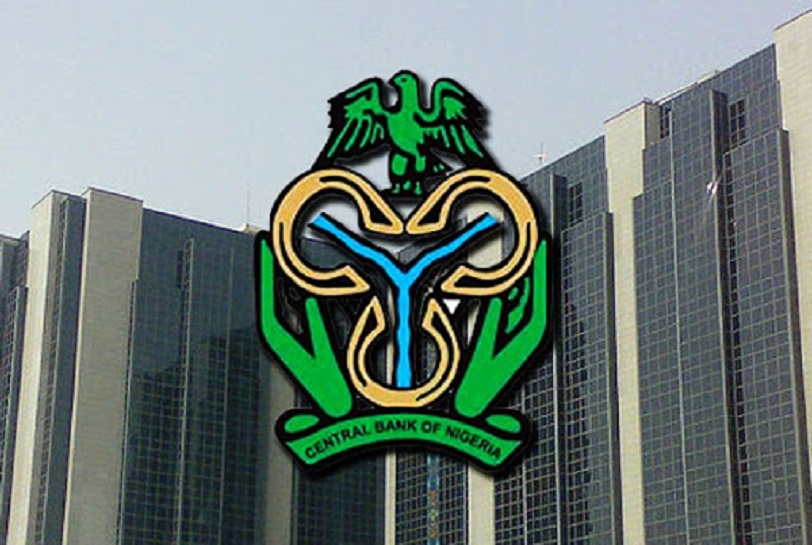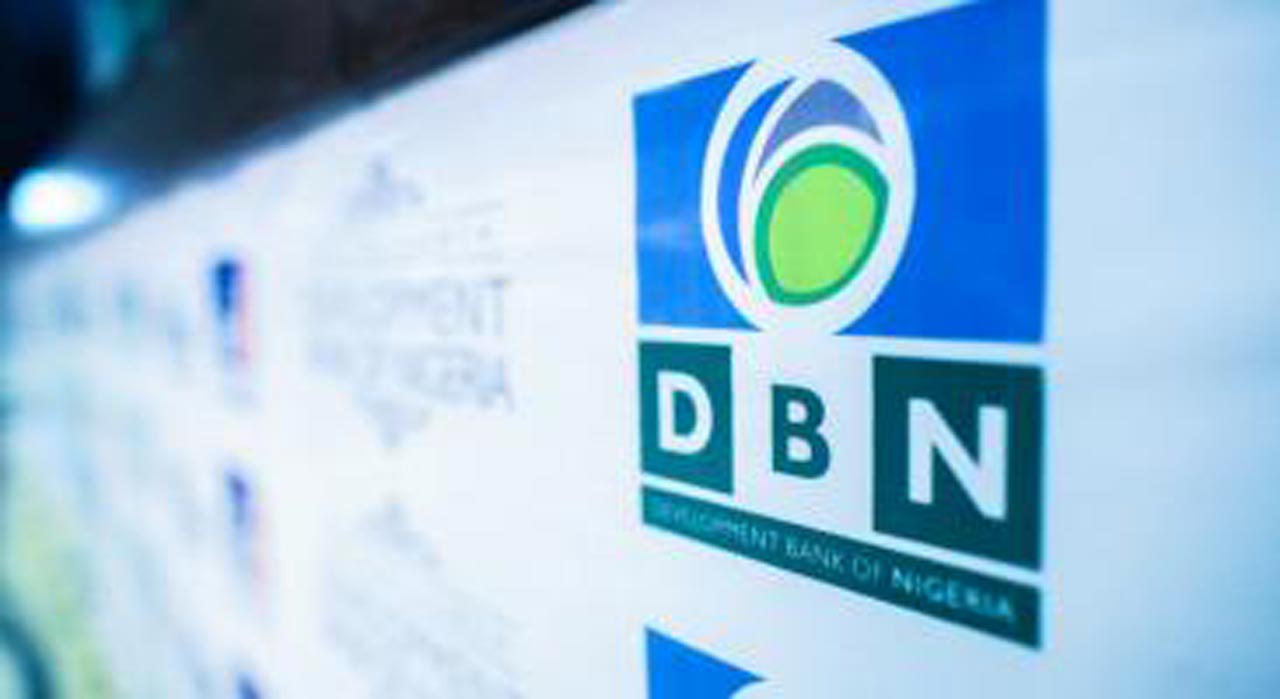Banking
CBN Warns Against Misinterpretation of Policy Guidelines

By Adedapo Adesanya
The Central Bank of Nigeria (CBN) has made some clarifications regarding the Monetary, Credit, Foreign Trade, And Exchange Policy Guidelines For Fiscal Years 2024 – 2025 document earlier published on Tuesday, September 17, 2024.
It disclosed this in a statement published on its website on Friday.
The apex bank revoked the document, saying that the move was to minimise risks of any further misrepresentation or misinterpretation, resulting in confusion among stakeholders.
“The attention of the Central Bank of Nigeria (CBN) has been drawn to certain instances of misinterpretation or misrepresentation of its biennial publication on Monetary, Credit, Foreign Trade, and Exchange Policy Guidelines published on September 17, 2024. In response, the CBN has temporarily withdrawn the document to minimise the risk of any further misrepresentation.
“As is stated explicitly in the document to guide stakeholders, the CBN reiterates that the publication is a compilation of previously issued policies and guidelines issued by the Bank up to a cut-off date, typically December 31 of the relevant year.”
It noted that the current document is intended to achieve certain objectives, including being a single reference source for the ease and convenience of stakeholders, a valid compilation of policies, directives, and guidelines for adjudication in conflict situations involving stakeholders, and additional clarification of policies and guidelines.
“As a compendium of previously issued policies and guidelines, the provisions are applicable only to the extent that there have been no updates or revisions to the guidelines and policies contained therein. This is stated explicitly in the document to guide stakeholders.
“In line with prior editions, the most recent publication (January 2024) contains policies and guidelines issued by the Bank up to 31st December 2023, some of which will remain relevant during the period 2024 – 2025. However, several others may cease to apply owing to revisions or updates that become applicable in the aftermath of its publication.
“This is clearly stated in the document as follows: The Guidelines may be adjusted by the CBN without prior notice, to address new developments in the domestic and global economies in the period. However, such amendments shall be communicated to the relevant institutions/ stakeholders in supplementary circulars (Page 8, Paragraph 1).
“The publication further provides the public with avenues for obtaining clarifications on the whole or any part of the document on pages 147 and 148.
“In the light of these clarifications, we ask stakeholders to note the following:
“Some recent media publications referencing aspects of the Guidelines refer to policy positions of the Bank issued prior to 31st December 2023, which have changed in the light of revisions and updates in 2024. One example is the Cyber Security Levy, which was suspended in May 2024, superseding the circular reported in the Guidelines.
“Certain technical aspects of the Guidelines have been widely misreported and misrepresented. For example, reports have mistakenly sought to link the fuel subsidy removal to external reserves. Such reports essentially missed the analytical basis for the original statement, which was intended to observe a potential risk that was to be mitigated by the policy. More recently, policies of the Bank around the Naira exchange rate and those of the fiscal authorities have positively altered the outlook of the subject in question.
“In summary, the Guidelines must primarily be viewed as a record of policies, circulars and directives issued by the Bank up to the end of 2023. They are not new directives and should not be reported as such.
“The Bank will continue to provide clear monetary policy direction and advice for the overall good of the Economy. We urge all stakeholders to seek clarification of information about the Bank before publishing.”.
The release of the document spurred some reports, excluding Business Post, which interpreted that the lender will sustain its Ways and Means Advances to the federal government at a 5 per cent limit for the fiscal years 2024-2025.
This is contrary to a bill passed by the National Assembly which raised the maximum borrowing percentage in the Act from five per cent to ten per cent.
Banking
Access Bank Opens Branch in Malta to Strengthen Europe-Africa Trade Ties

By Modupe Gbadeyanka
To strengthen Europe-Africa trade ties, Access Bank has opened a new branch in Malta. It will focus on international trade finance, employing approximately 30 people in its initial phase, with plans for controlled expansion over time.
It was learned that this Maltese branch was established by Access Bank UK Limited, the subsidiary of Access Bank Plc, which is also the subsidiary of Access Holdings Plc, which is listed on the Nigerian Exchange (NGX) Limited.
Access Bank Malta Limited commenced operations after obtaining a banking licence from the European Central Bank (ECB) and the Malta Financial Services Authority (MFSA).
Access Bank said the licence marks a transformative milestone in bolstering Europe-Africa trade flows.
Malta, a renowned international financial centre, and a gateway between the two continents, is strategically positioned to play a pivotal role in advancing commerce and fostering economic partnerships.
This strategic expansion into Malta enables The Access Bank UK Limited to leverage growing trade opportunities between Europe and Africa.
It underscores the organisation’s commitment to driving global trade, financial integration, and supporting businesses across these regions.
“By establishing operations in Malta, we will gain a foothold in a market that bridges European and North African economies, moving us one step closer to our goal of becoming Africa’s Gateway to the World.
“It further enhances our bank’s capacity to support clients with innovative solutions tailored to cross-border trade and investment opportunities,” the chief executive of Access Bank, Mr Roosevelt Ogbonna, stated.
“Europe has emerged as Africa’s leading trading partner, driven by initiatives such as the Economic Partnership Agreements between the EU and African regions and the African Continental Free Trade Area (AfCFTA).
“With Europe-Africa economic relations entering a new phase, The Access Bank Malta Limited is ideally positioned to deepen trade and meet the financing and banking needs of our clients in these expanding markets,” the chief executive of Access Bank UK, Mr Jamie Simmonds, commented.
Also speaking, the chief executive of Access Bank Malta, Renald Theuma, said, “Malta is uniquely positioned as a bridge between Europe and Africa, making it an ideal location for our subsidiary. This move allows The Access Bank Malta Limited to engage more closely with customers in Europe and deliver tailored financial solutions that drive growth and connectivity across both continents.”
Banking
Goldman Sachs, IFC Partner Zenith Bank, Stanbic IBTC, Others to Empower Women Entrepreneurs

By Adedapo Adesanya
The International Finance Corporation (IFC) and Goldman Sachs have announced a new partnership with African banks, including Nigeria’s Zenith Bank and Stanbic IBTC Nigeria to support the Goldman Sachs 10,000 Women initiative, a joint programme launched in 2008 to provide access to capital and training for women entrepreneurs globally.
The two Nigerian banks are part of nine financial institutions from across Africa which have agreed to join the 10,000 Women initiative committing to leverage the business education and skills tools the programme provides to create more opportunities for women entrepreneurs across the continent by providing access to business education.
Others banks include Stanbic Bank Kenya, Ecobank Kenya, Ecobank Cote d’Ivoire, Equity Bank Group, Banco Millenium Atlantico – Angola, Baobab Group, and Orange Bank.
Speaking on this, Ms Charlotte Keenan, Managing Director at Goldman Sachs said – “10,000 Women has had a powerful impact to date, but we know that there are more women to reach and more potential to be realized.
“We are delighted to partner with IFC to supercharge the growth of women-owned businesses across Africa, and mainstream lending to female business leaders. We remain committed to supporting entrepreneurs with the access to education and capital that they need to scale.”
Since 2008, the 10,000 Women initiative has provided access to capital and business training to more than 200,000 women in 150 countries.
“This expanded initiative marks a significant step forward in creating equitable economic opportunities for women in Africa, enabling them to build stronger, more resilient businesses and to realize their entrepreneurial goals,” said Ms Nathalie Kouassi Akon, IFC’s Global Director for Gender and Economic Inclusion.
Goldman Sachs’ 10,000 Women initiative complements the Women Entrepreneurs Opportunity Facility (WEOF), launched in 2014 by Goldman Sachs and IFC as the first-of-its-kind global facility dedicated to expanding access to capital for women entrepreneurs in emerging markets.
Banking
Development Bank of Nigeria Wins Financial Inclusion Leadership Award

By Aduragbemi Omiyale
In recognition of its unwavering commitment to fostering access to financing for Nigerian micro, small and medium enterprises (MSMEs), Development Bank of Nigeria Plc has been rewarded with the Financial Inclusion Leadership Award at the Champions of Inclusion Nigeria Financial Inclusion Awards.
This was at the 2024 International Financial Inclusion Conference (IFIC) organised by the Central Bank of Nigeria (CBN) in collaboration with the World Bank and other stakeholders.
The chief executive of the lender, Mr Tony Okpanachi, said the recognition affirms the company’s efforts in expanding access to financial services for MSMEs in Nigeria.
“We are honoured to receive the Financial Inclusion Leadership Award, which is a testament to our bank’s commitment to expanding access to financial services for all Nigerians. This award recognises our efforts to bridge the financial inclusion gap, particularly for a priority sector like the MSMEs.
“Additionally, this award is a validation of our strategic focus on driving financial inclusion for small businesses, and we are proud to be at the forefront of this initiative that drives that. We will continue to innovate and expand our financial inclusion programmes, ensuring that more Nigerian small and startup businesses have access to services,” he stated.
On his part, the Chief Operating Officer of DBN, Mr Bonaventure Okhaimo, said the accolade demonstrates the firm’s dedication to driving financial inclusion and economic growth in Nigeria.
“This award acknowledges our Bank’s innovative approach to widening opportunities for MSMEs in Nigeria to grow and scale their businesses,” he said.
“This award will motivate us to continue pushing the boundaries of financial inclusion, exploring more innovative solutions and partnerships to expand our reach and impact.
“We are committed to ensuring that more small businesses and startup enterprises in Nigeria have access to financial services, this award will further inspire us to accelerate our efforts in this regard,” he stated.
-

 Feature/OPED5 years ago
Feature/OPED5 years agoDavos was Different this year
-
Travel/Tourism8 years ago
Lagos Seals Western Lodge Hotel In Ikorodu
-

 Showbiz2 years ago
Showbiz2 years agoEstranged Lover Releases Videos of Empress Njamah Bathing
-

 Banking6 years ago
Banking6 years agoSort Codes of GTBank Branches in Nigeria
-

 Economy2 years ago
Economy2 years agoSubsidy Removal: CNG at N130 Per Litre Cheaper Than Petrol—IPMAN
-

 Banking2 years ago
Banking2 years agoFirst Bank Announces Planned Downtime
-

 Sports2 years ago
Sports2 years agoHighest Paid Nigerian Footballer – How Much Do Nigerian Footballers Earn
-

 Technology4 years ago
Technology4 years agoHow To Link Your MTN, Airtel, Glo, 9mobile Lines to NIN





















